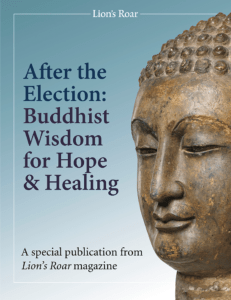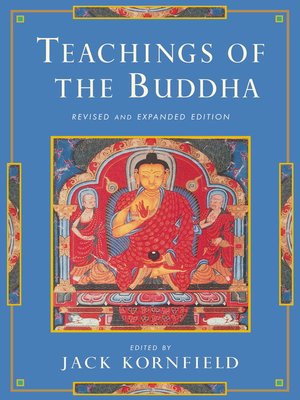U.S.ReligionSchoolSenior postingWebsiteJack Kornfield (born 1945) is a bestselling American author and teacher in the movement in American. He trained as a Buddhist in, and, first as a student of the Thai forest master and of Burma. He has taught worldwide since 1974 and is one of the key teachers to introduce Buddhist Mindfulness practice to the West. In 1975, he co-founded the in, with and, and subsequently in 1987, in. Kornfield has organized teacher training and led international gatherings of Buddhist teachers including the Dalai Lama and has worked as a peacemaker and activist. Contents.Biography Kornfield is one of four boys born to Jewish parents. He is a fraternal twin.After graduating from in Asian Studies in 1967, Kornfield joined the and was sent to Thailand.
There he met and became a monk under the renowned forest master, and later practiced with of Burma. Kornfield returned to the United States in 1972 and, in the summer of 1974, participated in the founding session of Naropa Buddhist University. From the associations of this period came the, co-founded in 1975 with and in. In 1987 he co-founded in Woodacre, California.Kornfield has trained many of the Vipassana teachers in America, and hosted and led gatherings for Buddhist teachers together with the Dalai Lama and worldwide. Trained with a Ph.D.

In from, Kornfield has written extensively on the bridge between Eastern and Western psychology.His daughter Caroline is a graduate of Berkeley Law and practices Asylum Law. His ex-wife Liana is an artist and therapist. His wife Trudy Goodman is also a renowned meditation teacher and the founding teacher of InsightLA.
Teachings. Founded by Kornfield in 1988Kornfield has worked to make Buddhism accessible for Westerners. He has focused on combining loving kindness and self compassion with the practice of mindfulness, and incorporating together the wisdom of Eastern and Western psychology.In Jack Kornfield's book After the Ecstasy, the Laundry, he writes about the honest development of the wise heart within the cycles of day-to-day life; for instance 'amid all the Western masters and teachers I know, some idealistic perfection is not apparent.
Times of great wisdom, deep compassion, and a real knowing of freedom alternate with periods of fear, confusion, neurosis, and struggle. Most teachers will readily admit this.' Kornfield sells online meditation courses from his web site.Books published His books include. Kornfield, Jack (2017). Atria Books, Inc. Kornfield, Jack (2011)., Inc. Retrieved May 15, 2015.
Kornfield, Jack (2011). Sounds True. Retrieved May 15, 2015. Kornfield, Jack (2010).
Shambhala Publications, Inc. Retrieved May 22, 2015. Kornfield, Jack (May 1, 2008). Bantam Dell. Retrieved April 20, 2015. Kornfield, Jack (2008) 2004.
Sounds True. Retrieved May 16, 2015. Kornfield, Jack; (1996) 1993. Retrieved May 16, 2015.
Kornfield, Jack (October 2, 2001). Random House Publishing Group. Retrieved June 6, 2011. Goldstein, Joseph; Kornfield, Jack (March 6, 2001). Retrieved June 6, 2011.
Goldstein, Joseph; Kornfield, Jack (August 29, 1995). Retrieved June 6, 2011.
Kornfield, Jack (June 1, 1993). Bantam Books.
Retrieved June 6, 2011. Feldman, Christina; Kornfield, Jack (1991).
Retrieved June 6, 2011. Kornfield, Jack; Breiter, Paul (September 1, 1985).
Quest Books. Retrieved June 6, 2011. Kornfield, Jack (1996) 1977. Shambhala Publications, Inc. Retrieved May 17, 2015.Kornfield lectures were featured by on his radio series 'The Other Side.' References.
Elliott, William (March 1, 1996). Retrieved June 6, 2011.
So before my interview with Jack Kornfield, who is a well-known Vipassana meditation teacher, I was concerned about not. Jack Kornfield. Archived from on August 12, 2015.
Retrieved August 20, 2015. ^ Silberman, Steve (September 1, 2010).
Retrieved September 10, 2015. November 28, 2005. Retrieved September 11, 2015.
^. Jack Kornfield. Archived from on December 22, 2013. Retrieved December 21, 2013. Kornfield, Jack (2008). P. Palmer, Helen (December 28, 1998).
Retrieved June 6, 2011. Regardless of its level of complexity, every practice relies on steadiness of concentration. Jack Kornfield, psychologist and meditation teacher, describes the practice that forms a cornerstone of. April 20, 2016. Retrieved April 20, 2016.

Retrieved April 20, 2016. (June 2006).
Retrieved June 6, 2011. Coleader of the workshop was Jack Kornfield, dear friend, psychologist, Vipassana teacher, and Buddhist monk, who taught participants the principles of insight meditation, gave lectures on Buddhism, offered personal darshans,. Kornfield, Jack (2001).
P.External links. from the DIY Dharma website. from the Urban Dharma website.
I'm loath to stamp any teacher with a blanket affirmation or condemnation. It seems to demean the extent of their effort. These are complex people in complex situations, acting from their own best wisdom.I do know that many people greatly respect Kornfield and his teaching. He is one of the first Americans, along with Sharon Salzberg and Joseph Goldstein, to greatly popularize Vipassana in the West and couch practice as a viable, accessible possibility for the common person (not only for monastics who train in Asia, say).

He has been very active in practice, teaching, and Engaged Buddhism (social issues and compassionate care).Kornfield studied with Ajahn Chah, one of the great luminaries of our time. His training was certainly authentic, even if he may sometimes voice the teaching in ways that can be easily understood by everyday people.In Buddhism, teachings are tailored to the audience. This was true of the Buddha as well: he didn't only teach one way; there are many levels to his teachings, and they address the capacity and attainment of the listeners. It's also up to us to help our teachers maintain their ethical standards and become more effective teachers.One benefit of realizing that our enlightened teachers are also human is our greater compassion. Instead of sitting idly, with great sense of entitlement, expecting the latest 'download', we can show up with presence and care.
We can actively participate in the unfolding between teacher and student.There's a great story about Chogyam Trungpa's attendant (and main disciple) guiding a drunken Trungpa Rinpoche into his bedroom after one of his many drinking binges. Trungpa insisted they sit down to talk about the attendant's practice, which of course was met with skepticism: what could he possibly teach in this state? But Trungpa reached into his mind and unlocked a pattern the attendant had been struggling with - he could perceive it happening within him.Trungpa (still drunk) then instructed his disciple to always differentiate between the 'man' and the 'teacher'.And sometimes we take the teacher role. We have to be that sharp, that confident. We have to believe in our own awakening. Originally, there is no set situation, no ego structure to huddle within, sheltering ourselves from exposure and transformation.
Don't check your level; don't check your attainment. This not-checking is faith in your own awakening.If 'you' try to do it, that's putting the process into the hands of the small, deluded self, the controlling ego.But if I were to ask you your name, you could immediately answer. And if you eat an apple you can directly perceive its apple flavor.
Teachings Of The Buddha Jack Kornfield Pdf Creator Online
This is already your own awakened nature. Your innate mind already sees truth very clearly.
You just expect something else, you think 'this can't be it', so you check and manipulate.It reminds me of a great one-panel cartoon by Gahan Wilson, in which a naive, moon-faced student is peering at an ancient, dry, shriveled-up master who gazes straight ahead. Both are sitting in meditation, and the student has apparently asked a question and is awaiting the response. The caption of the cartoon has the master saying (I imagine in a disdainful tone) 'What do you mean 'what's next?'
You just believe that this very moment is something other than your original awakening. Kornfield was a monk in his youth. He is criticized for mixing different things from different Buddhist traditions together and then mixing all of that with modern psychology.I wouldn't have a problem with that, as my motto has always been 'whatever works', but Kornfield - at least to my knowledge ( I could be wrong ) does not point out in his writings what comes from where.If something he wrote makes you happier, keep using it, just be aware that it might not be Buddhism - but who cares? The whole point is to be happier.If you want to know what authentic Buddhist teachings are get a copy of the bookby Walpoa Rahula ( a Buddhist Monk )It is written in very clear language and it is very short.Despite being short it covers all of the most important teachings very well.It is old enough to be in many libraries and used book venues.If none of those options exist there is a free version of the book that you can read.